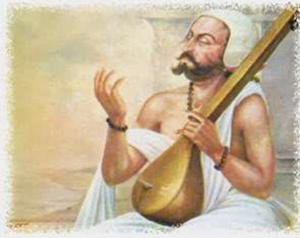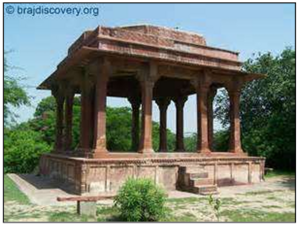Talk:Sexual Orientation
By Vishal Agarwal
Hindu Dharma is the only faith that does not condemn anyone and does not have a strong negative opinion on unconventional relationships. In the Hindu scriptures, non-heterosexuals and those who do not conform to the male-female gender binary are all included in a category called ‘third nature’. However, it is stated emphatically that they have the same spark of the Divine in them, males and females, because the true ‘I’ or our ātmā has no gender, race, physical form, etc.
The ātmā is not a woman nor a man nor is it a third gender. Whichever particular body it assumes, it is connected with that very form. Yajurveda, Śvetāśvatara Upaniṣad 5.10
I (The Divine) am all, whether eunuchs, men or women. Yajurveda, Taittirīya Āraṇyaka 1.11.10
By devoting oneself to the service of Śiva, and seeking communion with His Name, men, women, and even the eunuchs reach the Supreme abode of Rudra. Śivadharmottara Upapurāṇa 2.166
The reality of karma-vāsanā-s and punarjanma provides a rationale for why people are born the way they are[1]. According to our śāstra and our sants, we can change our gender from life to life. This happens roughly after 4 rebirths, but in some cases, a person changes his gender after say, 20 rebirths. In these cases, the latent vāsanā-s (mental impressions) give the person a svabhāva or prakṛti (nature) that is contrary to the people of his gender. We should be proud of the fact that ours is the only global faith that does not condemn homosexuals for making a so-called ‘wrong, perverse’ choice. We believe that it is a part of their nature. In the eyes of the Bhagavān, men and women are equal; and so are those who are gender fluid or have non-conventional sexuality. A modern scholar, explaining the acceptance of homosexuals as equals in the traditions of Bhakti states–
“One of the most remarkable examples of sexual inclusivity in the sacred texts of Hinduism, and perhaps in the religious literature of the world, occurs in the Rāmāyaṇa. The context here is a story told by Rāma in which he likens God to a parent having numerous children. Although each child possesses a different gift, the parent loves all in the same way. The entire universe, Rāma explains, is his creation, and he is equally compassionate to all. “One who worships me in thought, word, and action, relinquishing deceit, whether man, third sex person, or woman, is supremely dear to me.”[2]
It is well known that many male devotees often assume feminine names and live as if they were Gopī-s of Vṛndāvan who were devoted to male Kṛṣṇa. They dress and act as women and this behavior is considered a mark of their total surrender to Kṛṣṇa, who for them is the only male[3]. The story below is of a gay Muslim who became devoted to Kṛṣṇa and is considered a sant now.
Raskhān:
A beautiful story is narrated in Vaiṣṇava hagiographies about Sant Raskhān, a Muslim Pathān who was born close to the town of Amroha in Uttar Pradesh in northern India in 1548 CE. His original name was Sayyad Ibrāhīm. He was infatuated with a Baniyā (trader) boy. Some Vaiṣṇavas discussed amongst themselves, “If he can fall so deeply in love with a human being, how wonderful it would be if he were to fall in love with Kṛṣṇa, the most handsome one? Falling in love with Bhagavān would lead Raskhān to mokṣa, whereas falling in love with a human being will not take him anywhere.” They conspired with a local vendor who sold ‘pān’ (betel leaves wrapped around some condiments) to divert Raskhān toward love for Kṛṣṇa.
When Raskhān went to buy a pān from the vendor, the latter wrapped it in a piece of paper and gave it to his customer. When Raskhān unwrapped the pān, he was pleasantly surprised to see the picture of the handsome Bhagavān Kṛṣṇa. He asked the vendor whose picture it was. The vendor said, “Don’t you know of Kṛṣṇa, our Bhagavān, and the most handsome One? His mūrtis are in temples in Vṛndāvan.”
Raskhān decided to buy a green shawl and take it as a present for Kṛṣṇa to the temple in Vṛndāvan. But, the priests stopped him at the entrance and said, “You cannot enter the Mandir, and we will also not accept your offering because this is a temple, and you are a Muslim. Moreover, it is afternoon and the Mandir will be closed for the Bhagavān to take his siesta. Please go away.”
Disappointed, Raskhān went away. After a few hours, when the priests unlocked the Mandir, they were shocked to see a green shawl wrapped around the shoulders of Kṛṣṇa’s mūrtis, even though they had refused to accept that as a gift from Raskhān. The priests interpreted the miracle to mean that Raskhān was a true Bhakta of Kṛṣṇa, and the Bhagavān had Himself accepted the gift from the Muslim Bhakta. The priests went in search of Raskhān and found him singing bhajans in praise of Kṛṣṇa on the banks of the Yamunā River nearby. Raskhān was honored by the Vaiṣṇavas of Vṛndāvan, and he chose to settle down in that area. For the rest of his life, he composed numerous verses in praise of Kṛṣṇa. He also translated the Bhāgavata Purāṇa into Persian, and wrote verses in praise of Śiva and Durgā. When he died, he was given a respectable funeral by the Vaiṣṇavas. The site of his funeral is marked by a monument that is still visited for pilgrimage today.
References[edit]
- ↑ Agarwal, Vishal. What Happens When We Die. Section 10, available online at [1].
- ↑ Rambachan, Anantanand. The passage referred to is from Rāmcaritmānas, Uttarakāṇḍa, dohā 87. 2015, p. 125. The word in the original text is ‘napuṃsaka,’ translated alternately as ‘eunuch’ or ‘third sex person’ (i.e., a homosexual).
- ↑ Swami Akhaṇḍānanda Sarasvatī. Nārada Bhakti Darśana. Satsāhitya Prakāśan, 1966, p. 75, Bombay. The story relates that Saint Mīrābāī arrived at the door of Jīva Gosvāmī (or Tulasīdāsa in some versions), who initially refused to meet her, citing that as a Sādhu, he does not meet women. Mīrābāī responded, “I believe that Kṛṣṇa is the only male in the world and all the rest are women.” Impressed by her words, he relented and invited her inside for a spiritual conversation.


